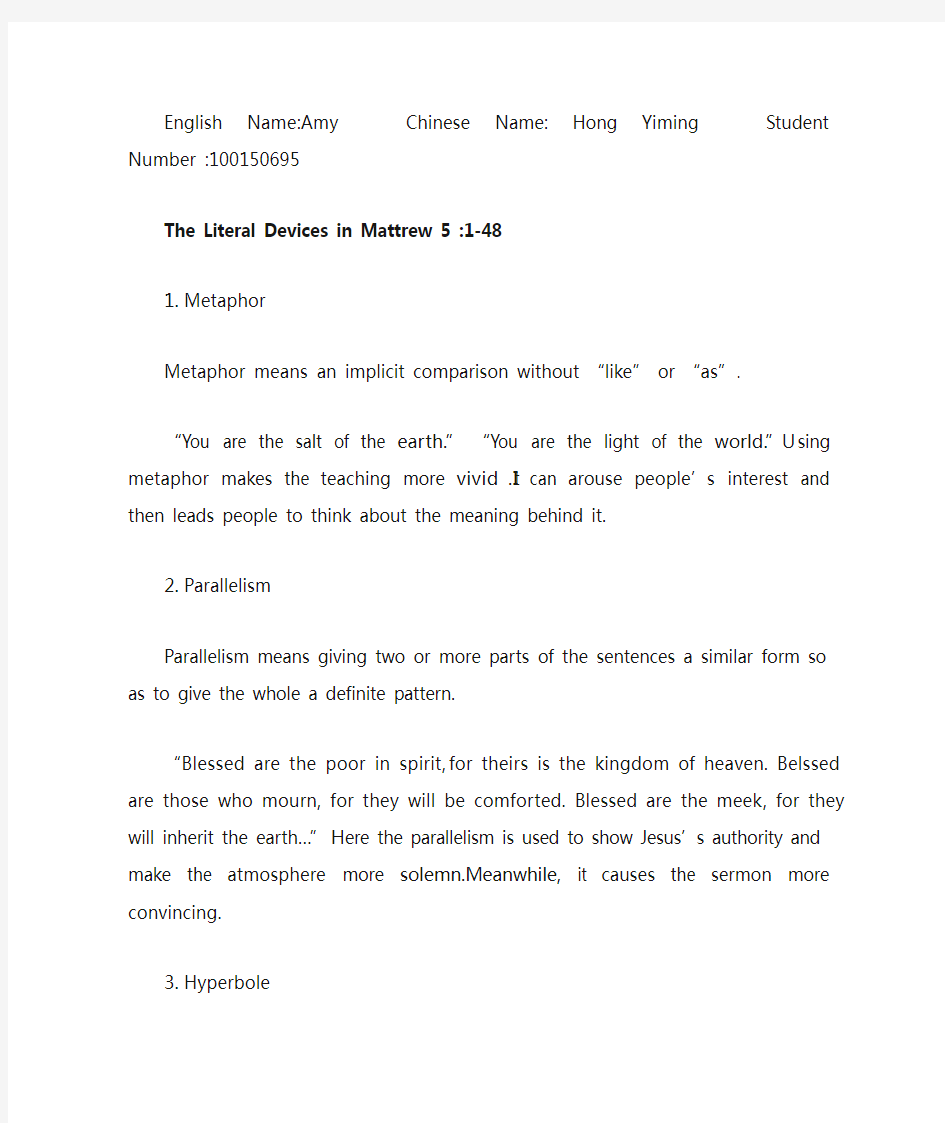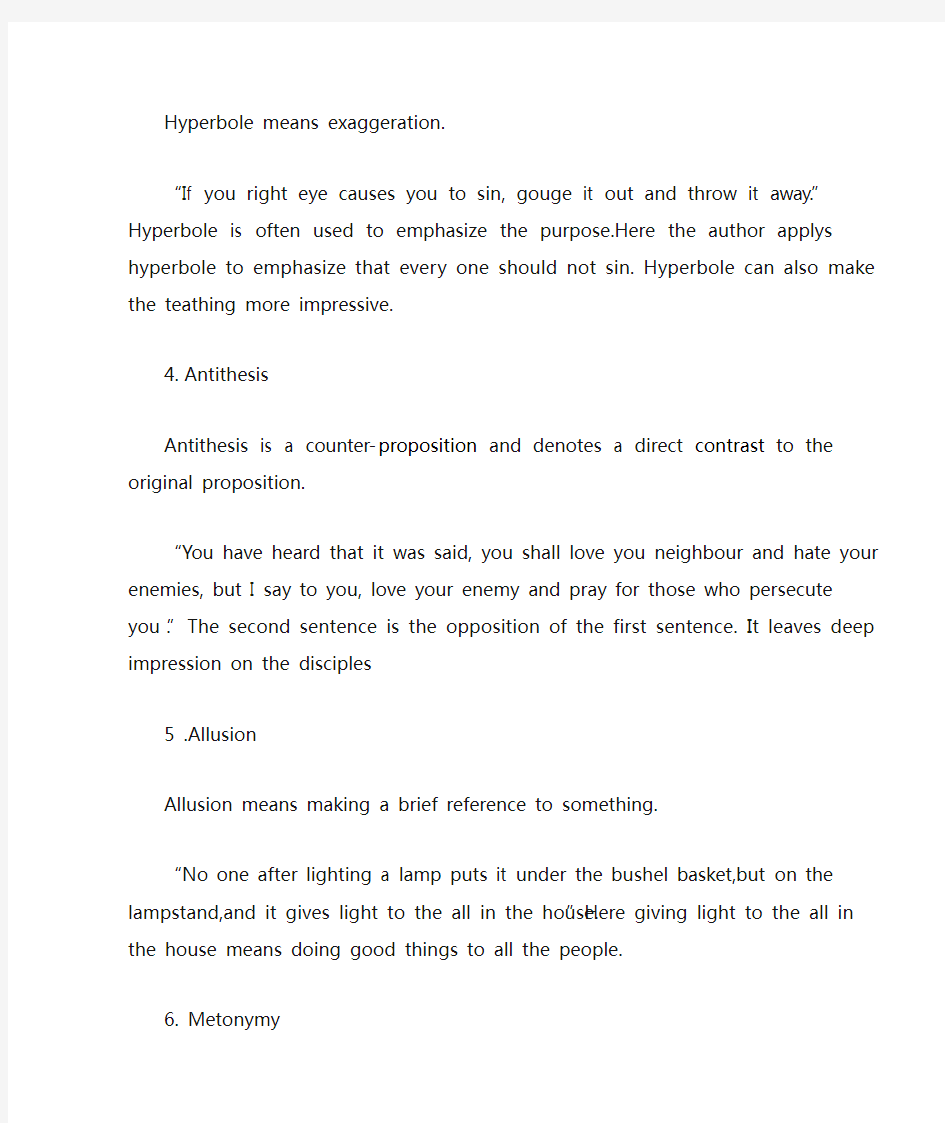The literal device in Mattrew


English Name:Amy Chinese Name: Hong Yiming Student Number :100150695 The Literal Devices in Mattrew 5 :1-48
1.Metaphor
Metaphor means an implicit comparison without “like” or “as”.
“Y ou are the salt of the earth.”“Y ou are the light of the world.”U sing metaphor makes the teaching more vivid .I t can arouse people’s interest and then leads people to think about the meaning behind it.
2.Parallelism
Parallelism means giving two or more parts of the sentences a similar form so as to give the whole a definite pattern.
“Blessed are the poor in spirit,for theirs is the kingdom of heaven. Belssed are those who mourn, for they will be comforted. Blessed are the meek, for they will inherit the earth…”H ere the parallelism is used to show Jesus’s authority and make th e atmosphere more solemn.Meanwhile, it causes the sermon more convincing.
3.Hyperbole
Hyperbole means exaggeration.
“If you right eye causes you to sin, gouge it out and throw it away.”Hyperbole is often used to emphasize the purpose.Here the author applys hyperbole to emphasize that every one should not sin. Hyperbole can also make the teathing more impressive.
4.Antithesis
Antithesis is a counter-proposition and denotes a direct contrast to the original proposition.
“Y ou have heard that it was said, you shall love you neighbour and hate your enemies, but I say to you, love your enemy and pray for those who persecute you .”The second sentence is the opposition of the first sentence. It leaves deep impression on the disciples
5 .Allusion
Allusion means making a brief reference to something.
“No one after lighting a lamp puts it under the bushel basket,but on the lampstand,and it gives light to the all in the house.”Here giving light to the all in the house means doing good things to all the people.
6. Metonymy
Metonymy is a figure of speech in which a thing or concept is not called by its own name, but by the name of something intimately associated with that thing or concept.“Do you think that I have come to abolish the law or the prophets; I have come not to abolish but to fulfill.”I n this sentence “the law” means Pentateuch, “the prophets” means Prophets. W hat’s more, here the Pentateuch and Prophets are equal to the whole Old Testament.
7.Oxymoron
An oxymoron is a figure of speech that combines contradictory terms and crafted to real a paradox.
“Blessed are you when people revile you and persecute you and utter all kinds of evil against you falsely on my account.” It seems contradictory that you are reviled and you are blessed.Actually it is to teach the disciples to be kinder than the ordinary person.It leads the reader to dig deeper and understand the true essence.
8.Rhetorical question
A rhetorical question is a figure of speech in the form of a question that is asked in order to make a point and without the expectation of a reply.
“Do not even the tax collectors do the same?” “Do not even the Gentile s do the same?”The rhetorical questions are used to intensify the tone and posed for the sake of encouraging listeners to consider the viewpoint.
